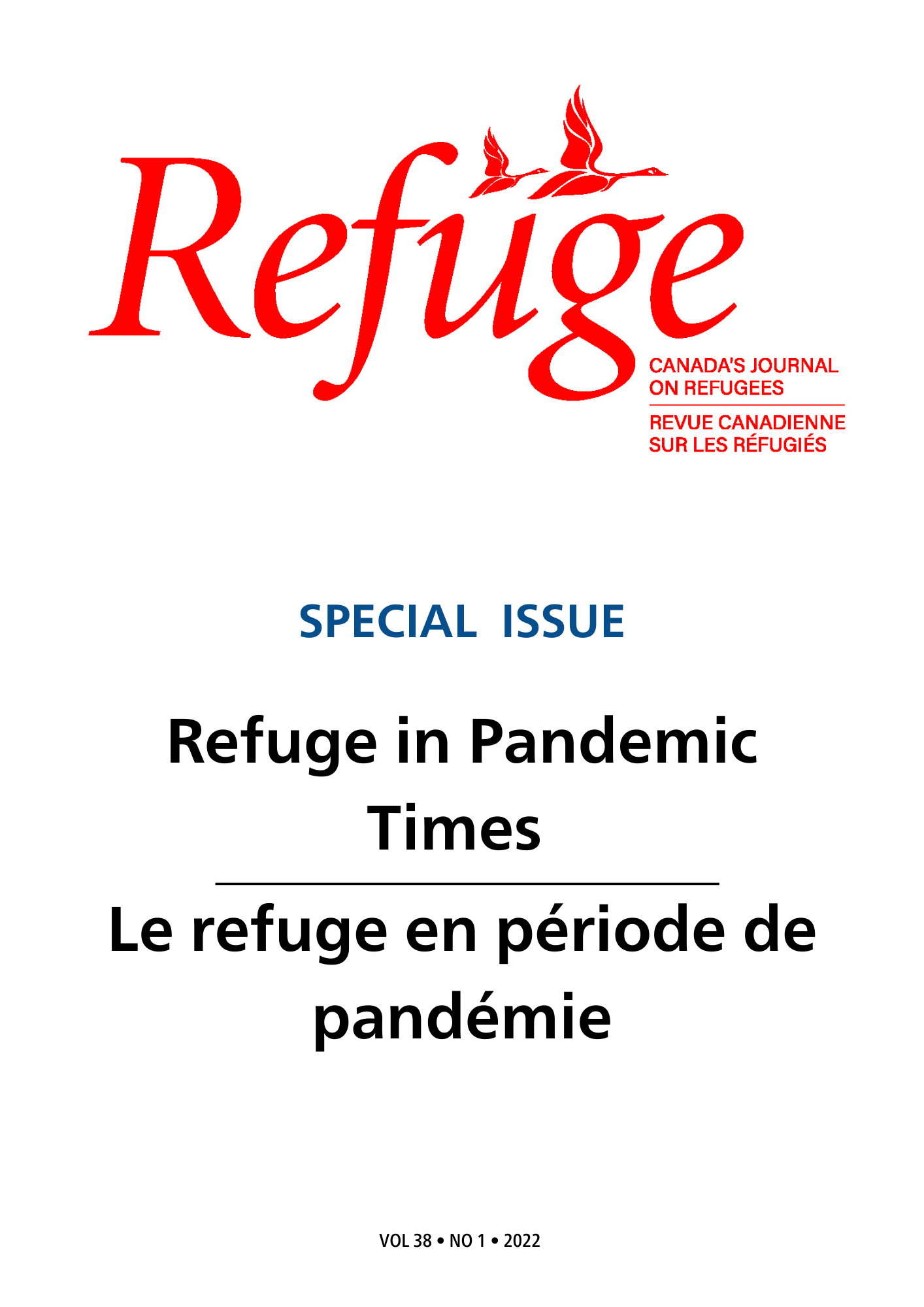From Ethics to Refusal: Protecting Migrant and Refugee Students from the Researcher's Gaze
DOI :
https://doi.org/10.25071/1920-7336.40893Mots-clés :
humanizing methodology, testimonio, migrant and refugee youth, politics of protection, research ethicsRésumé
Cet article apporte une contribution méthodologique aux études sur les réfugiés dans le contexte du «tournant éthique» dans le champ en plaidant en faveur d’une orientation spectrale envers la voix étudiante qui resitue les connaissances des participants comme diffuses plutôt qu’explicites. Cette orientation, comme posture méthodologique, va au-delà de la réflexivité et pratique un refus de s'engager dans une recherche centrée sur les dommages. S’appuyant sur une large littérature théorique et conceptuelle dans les contextes de migration forcée, ce court essai élargit la littérature actuelle axée sur l’éthique procédurale en proposant une méthodologie plus humanisante pour mener des recherches auprès des jeunes migrants et réfugiés pendant la pandémie de COVID-19.
Statistiques
Références
Anzaldúa, G. (1987). Borderlands/La frontera: The new Mestiza. Aunt Lute Books.
Anzaldúa, G. & Keating, A. (2015). Light in the dark/Luz en lo oscuro: Rewriting identity, spirituality, reality. Duke University Press.
Behar, R. (1996). The vulnerable observer: Anthropology that breaks your heart. Beacon Press.
Delgado-Bernal, D., Burciaga, R., & Flores Carmona, J. (2012). Chicana/Latina testimonios: Mapping the methodological, pedagogical, and political. Equity & Excellence in Education, 45(3), 363–375. https://doi.org/10.1080/10665684.2012.698149
Dillard, C. B. (2012). Learning to (re)member the things we’ve learned to forget: Endarkened feminisms, spirituality, & the sacred nature of (re)search & teaching. Peter Lang.
Latina Feminist Group. (2001). Telling to live: Latina feminist testimonios. Duke University Press.
Paris, D., & Winn, M. T. (2014). Humanizing research: Decolonizing qualitative inquiry with youth and communities. Sage Publications, Inc.
Simpson, A. (2007). On ethnographic refusal: Indigeneity, “voice” and colonial citizenship. Junctures: The Journal for Thematic Dialogue, 9, 67–80. https://junctures.org/index.php/junctures/article/view/66
Tuck, E. (2009). Suspending damage: A letter to communities. Harvard Educational Review, 79(3), 409–428. https://doi.org/10.17763/haer.79.3.n0016675661t3n15
Tuck, E., & Yang, K. W. (2014). Unbecoming claims: Pedagogies of refusal in qualitative research. Qualitative Inquiry, 20(6), 811-818. https://doi.org/10.1177/1077800414530265
Téléchargements
Publié-e
Comment citer
Numéro
Rubrique
Licence
© Vianney A. Gavilanes 2022

Cette œuvre est sous licence Creative Commons Attribution - Pas d'Utilisation Commerciale 4.0 International.
Les auteurs qui publient dans Refuge conservent le droit d’auteur associé à leur œuvre, et octroient au public une licence Creative Commons Attribution - Utilisation non commerciale 4.0 International. La licence permet l’utilisation, la reproduction et l’adaptation du matériel avec attribution par tous moyens et sous tous formats pour des fins non commerciales. Pour des informations générales sur les licences Creative Commons, visitez le site Creative Commons. Pour la licence CC BY-NC 4.0, consultez le résumé lisible par l'homme.







